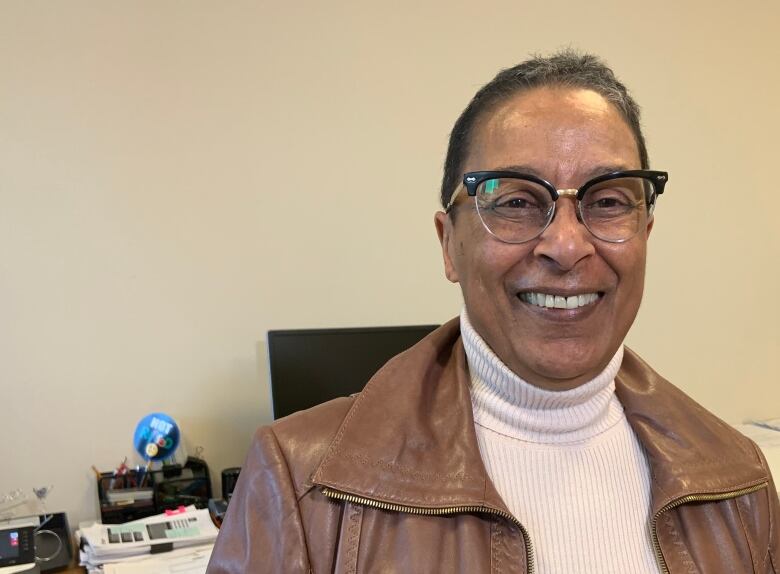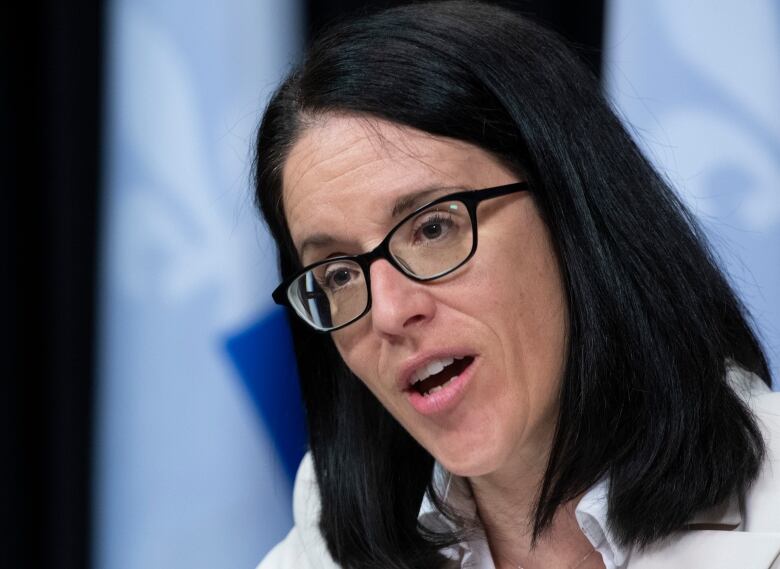Anglo institutions are in Quebec nationalists' crosshairs, but there are new twists to this old tale
A communication breakdown with the government has some Anglos worried about what new Bill 101 will look like

Dawson College is cramped, or at least it will be whenever the pandemic subsides and its nearly 8,000 students return to the downtown Montreal campus full-time.
The anglophone CEGEP has been short on space for years. The provincial government estimates Dawson needs another 7,085 square metres roughly the size of a soccer field to accommodate its existing student body.
"We are working in spaces that are very, very tight. It's very uncomfortable," Diane Gauvin, Dawson's executive director, said recently.
So it was with much relief that administrators learned last year that funding for a $100-million expansion had been fast-tracked as part of a government stimulus bill.
But for some sovereigntists and Quebec nationalists, the expansion threatens the vitality of the French language in Montreal.
They fear Dawson's gleaming new buildings will lure francophone students away from the French-languageCEGEP system, which is struggling with funding needs of its own.

The project became so contentious that around 100 people attended a demonstration in Montreal this fall to protest Quebec's decision to fund expansions to both Dawson and McGill University.
Earlier this week, the Parti Qubcois tabled a motion calling on the government to yank the funding for Dawson's new building. The motion was supported by fellow sovereigntist party, Qubec Solidaire.
The governing Coalition Avenir Qubec, however,refused to let the motion be debated, let alone come to a vote.
But if Dawson escaped unscathed, there are worries within the anglophone community that other institutions might not be so lucky amid a wave of bullish nationalismthe CAQ often draws on for support.
Communication breakdown
Last Friday, Quebec's minister for federal relations, Sonia LeBel, revealed the changes she'd like to see to the Official Languages Act.
The wish list includes reducing Ottawa's role in protecting the constitutional rights of Anglos in Quebec. This did not go over well among anglophones.
"I started laughing. I actually had to give myself a tap on the face," said Marlene Jennings, a former Liberal MP who heads the largest advocacy group for English speakers in the province, the Quebec Community Groups Network.
She pointed out the current Quebec government sought to abolish English-language school boards (a move that was blocked by the courts), and previous provincial governments had succeeded at limiting access to other services in English.
That track record, Jennings said, means anglophones don't trust the provincial government to protect their rights and institutions.
The CAQ government has also promised to revise, and strengthen, Bill 101, amid some evidence French is losing ground in Montreal, especially in the retail sector.

And while there is a political consensus around the need to update the language charter, the government is being egged on to go as far as possible by the conservative nationalistsemployed by the Quebecor media chain.
Last month, one Journal de Montreal columnist described the increased use of English in the city as the "other epidemic threatening Quebec." Another pundit at the paper has been urging the premier to stop speaking English at news conferences.
"There are some very real concerns about certain tendencies in Quebec politics right now," said Lorraine O'Donnell, a Quebec historian at Concordia University who runs the Quebec English-Speaking Communities Research Network.
"There are worries about our capacity to have our concerns taken into account about big decisions than are on offer."
It hasn't helped matters that the CAQ government often appears uninterested in speaking with representatives of the English-speaking community.
Jennings said she has barely spoken with Christopher Skeete, the CAQ MNA tasked with representing English speakers, since taking over the QCGN in November.
She also said she hasn't been able to sit down with anyone in the governmentto discuss the impending changes to Bill 101, nor was the QCGN consulted before LeBel drafted her letter to Ottawa.
"You want to do a better job? How about actually speaking to us before making these decisions," Jennings said.
Skeete's office declined an interview request from CBC News.
WATCH: Premier's point-man for English speaking Quebecers says he'd like to see free French lessons for Anglos
Old stereotypes, new realities
At times the pandemic has underscored that there might still be some truth in that tired old chestnut about two solitudes.
Polling has consistently shown English speakers in the province are more fearful of catching COVID-19 than francophones, a difference Premier Franois Legault blamed in part on another venerable anglophone institution, the Montreal Gazette health reporter Aaron Derfel.
But the well-publicized flashpoints around language may be leaving the impression that relations between the two groups are more acrimonious than they actually are.
A poll of 400 Quebecers conducted in December by the Association for Canadian Studies found the vast majority around 70 per cent felt as though relations between Anglos and Francos had stayed about the same in recent months.
Slightly higher numbers of non-francophones (27 per cent), and Montrealers (25 per cent), were inclined to say relations had worsened.
"The numbers are high enough to suggest there is something there but I believe that it is being driven by certain media," said Jack Jedwab, who heads the association that commissioned the study.

O'Donnell said the common stereotype of Quebec anglos unilingual, white, wealthy factory owners never really applied widely, and has long since been eclipsed by a different socio-economic reality.
The English-speaking community is more racially diverse, proportionally, to the francophone population, she said. It also has lower rates of employment and higher rates of poverty.
"The old story is a heavy burden," said O'Donnell. "If you can't imagine that English speakers are poor then how can you address poverty in the English-speaking community."
At the same time, steadily increasing rates of bilingualism among Anglos has meant there is more civic engagement on their part thanin the past.
So even if the prospect of expanding Bill 101 is a source of worry for some Anglos, O'Donnell said they need not be passive observers in the process.
"I think with Bill 101 there is an opportunity for English speakers to express our concerns," she said. "It's an opportunity for a dialogue."
With files from Kristy Rich, Hugo Lavalle and Alex Boissonneault













_(720p).jpg)


 OFFICIAL HD MUSIC VIDEO.jpg)
.jpg)



























































































